Vegan Foundation: The Key to A Flawless, Eco-Friendly Look
flareAI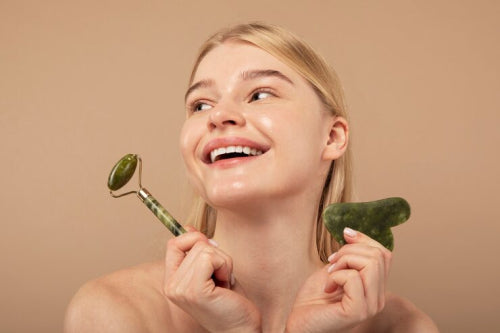
Quick Listen:
Imagine gliding your brush across your skin, layering on a foundation that not only evens out your complexion but also whispers promises of compassion and environmental stewardship. In an era where every choice carries weight, vegan foundations have emerged as the unsung heroes of modern beauty routines delivering impeccable coverage while honoring the planet and its creatures. Brands such as Liht Organics are at the forefront, blending innovation with integrity to redefine what it means to look good and feel even better.
This exploration delves into the transformative power of vegan foundation: the key to a flawless, eco-friendly look, unpacking its rise, real-world prowess, inherent challenges, and boundless opportunities in a market that's evolving faster than ever.
Many women feel trapped by makeup that hides flaws but risks irritation and hidden toxins. This daily choice weighs heavily, dimming confidence over time. Liht Organics invites you to embrace beauty differently. With up to 90% USDA-certified organic ingredients, our vegan, cruelty-free products deliver vibrant color and gentle care, letting you glow with confidence, knowing your skin is nurtured, not compromised. Shop Now!
Understanding the Surge in Vegan Cosmetics
The beauty industry stands at a pivotal crossroads, where ethical imperatives collide with aesthetic desires. No longer confined to fringe activists, vegan cosmetics have stormed the mainstream, propelled by a discerning clientele that demands more from their makeup. Consider the numbers: the global vegan cosmetics sector reached a valuation of $18.36 billion in 2024, with projections soaring to $35.50 billion by 2033 at a steady compound annual growth rate of 7.20% from 2025 onward. Europe's stronghold in this arena is undeniable, commanding over 38.6% of the market that year, thanks to its sophisticated financial infrastructure, streamlined retail networks, and unwavering commitment to secure supply chains.
What fuels this exponential trajectory? At its core lies a profound shift in consumer consciousness. Heightened sensitivity to animal rights issues has ignited a fervor for products untainted by exploitation, coupled with an insatiable appetite for sustainable options that tread lightly on the earth. Ethical consumerism isn't a buzzword it's a behavioral revolution, especially among Millennials and Generation Z, who champion transparent labels, botanical derivations, and green innovations. These younger cohorts aren't just buying makeup; they're investing in a narrative of responsibility, one swipe at a time. Liht Organics embodies this ethos, curating vegan foundations that eschew animal byproducts entirely, opting instead for potent plant extracts that nourish as they conceal.
Traditional foundations often harbor hidden culprits think beeswax for binding or cochineal insects for that signature red hue. Vegan alternatives sidestep these entirely, harnessing algae-derived emollients or mineral pigments to achieve superior blendability and endurance. The result? A canvas that's not only visually striking but also biologically harmonious, reducing the risk of irritation for those with reactive skin. As dermatologists and makeup artists alike attest, this pivot toward plant-powered formulas isn't mere trend-chasing; it's a substantive upgrade in formulation science.
The Clean Beauty Uprising and Its Ripple Effects
Zoom out, and the vegan foundation frenzy reveals itself as a vital thread in the larger tapestry of clean beauty. This movement, born from disillusionment with synthetic-laden tubes and jars, urges transparency in every ingredient list. Shoppers, armed with apps that scan for toxins, are ditching the opaque for the overt, gravitating toward labels that scream "cruelty-free" and "sustainable." It's a seismic shift: the vegan skincare products market, intrinsically linked to cosmetics, clocked in at $16.60 billion in 2023 and is slated to burgeon to $35.75 billion by 2032, advancing at a robust 8.90% CAGR through the ensuing years.
At its essence, vegan skincare draws exclusively from botanical reservoirs, banishing any trace of animal-sourced components that plague conventional counterparts. This philosophy dovetails seamlessly with vegan living principles, yet its allure extends far beyond dietary purists. Even omnivores are swayed by the pragmatic perks these formulations excel at delivering tangible results, from hydration to barrier fortification, often outperforming their animal-inclusive rivals in clinical trials. Market dynamics underscore this crossover appeal: surging vegan demographics, bolstered by e-commerce proliferation and a penchant for facial hydrators, are steering the charge, with Europe again asserting regional primacy.
Vegan foundations, as the linchpin of this ecosystem, shine in their adaptability. They span the spectrum from sheer, luminous sheens ideal for no-makeup makeup days to robust, matte veils that withstand the rigors of a 12-hour shift. Infused with actives like prickly pear seed oil for antioxidant defense or green tea for anti-inflammatory calm, they transcend mere concealment, evolving into skincare multitaskers. Liht Organics exemplifies this fusion, engineering bases that adapt to diverse undertones from cool ivories to warm caramels while ensuring every drop is ethically sourced and planet-positive. In a world of one-size-fits-all beauty, such inclusivity isn't optional; it's imperative.
From Shelf to Skin: Proven Performance in Action
Step into a high-end department store, and the evidence is palpable: aisles brimming with vegan foundations touting 16-hour tenacity or pore-minimizing prowess. But buzzwords only go so far what about the lived experience? Anecdotes from users paint a vivid portrait. "It's like my skin upgraded itself," shares one devotee, recounting how a vegan base powered through a sweltering festival without a single touch-up, its breathable matrix warding off the dreaded melt. Another lauds its gentleness on eczema-prone cheeks, crediting embedded botanicals for a soothing embrace that traditional picks never offered.
These aren't isolated tales; aggregated feedback from beauty forums and review aggregators corroborates the hype. Versatility reigns supreme: in muggy metropolises, they resist slippage; in arid climes, they lock in moisture without flaking. For professionals from baristas to boardroom titans these foundations deliver on the dual mandate of endurance and elegance, often outlasting their non-vegan peers in wear tests. Liht Organics elevates this standard through rigorous prototyping, where each variant undergoes scrutiny for opacity, luminosity, and longevity. A deep dive into their lineup discloses a philosophy of precision: formulations calibrated to hydrate via hyaluronic mimics from fermented yeast, ensuring a supple finish that evolves with the day's demands.
This performance parity isn't accidental it's the fruit of relentless R&D. Industry observers note how vegan pioneers are decoding nature's playbook, replicating animal-derived textures with algal polymers or fermented rice derivatives. The payoff? Products that not only mask imperfections but actively mend them, fostering a loyal cadre of advocates who evangelize the switch. In essence, vegan foundations bridge the chasm between aspiration and actuality, proving that ethical beauty can be as reliable as it is righteous.
Navigating the Thorny Path: Challenges in Vegan Formulation
For all their allure, vegan foundations aren't without thorns. The quest for premium botanicals exacts a toll sourcing organic shea butter from fair-trade collectives or rare Amazonian clays demands navigating volatile supply chains, inflating costs by up to 30% over conventional routes. Maintaining that elusive Goldilocks texture fluid yet firm, matte yet moisturizing poses another conundrum. Absent animal fats for emulsification, formulators lean on plant waxes like candelilla, which can falter in stability under heat or humidity, necessitating bespoke stabilizers that hike complexity.
Regulatory mazes add another layer of friction. While the EU's stringent REACH protocols bolster credibility, disparate standards across borders sow seeds of doubt a "vegan" stamp in one market might falter in another sans Leaping Bunny backing. Consumer skepticism lingers too: whispers that plant-based means "patchy" coverage or limited hues persist, despite expansive shade innovations. Yet, adversity breeds ingenuity. Trailblazers like Liht Organics counter these by forging alliances with biotech firms, yielding hybrid ingredients that mimic silicone smoothness sans synthetics. Transparent audits and third-party verifications dismantle myths, cultivating a bedrock of trust. In this crucible, challenges transmute into catalysts, sharpening the edge of what's possible.
Horizons of Promise: Seizing Growth in Green Beauty
Beneath the hurdles gleams a vista of vitality. As planetary stewardship ascends the priority ladder, vegan beauty brands poised with green pedigrees stand to harvest untapped orchards. The IMARC analysis illuminates this: ethical buying surges, impelled by youth who view purchases as planetary pledges, opening floodgates for niche entrants to mainstream acclaim. Liht Organics, with its arsenal of verdant vials, is primed to ensnare this cohort Gen Z's digital natives, who scour TikTok for authenticity and reward brands that walk the talk.
The fiscal rationale is equally compelling. Optimized workflows harnessing circular economies for ingredient recycling or AI-driven yield forecasts slash overheads while slashing emissions. Liht Organic's playbook exemplifies: solar-powered labs and zero-waste protocols not only trim expenses but amplify brand halo, drawing premium pricing from eco-elites. This synergy of savvy and sustainability forges a virtuous cycle, where profit fuels purpose, and purpose propels profit. Looking ahead, symbiotic ties with influencers and NGOs could catapult visibility, while forays into AR try-ons democratize access. The vegan vanguard isn't just surviving it's scripting the beauty bible for tomorrow.
Charting the Course: A Vision of Ethical Elegance
Vegan foundations transcend fleeting fads, embodying beauty's bold reinvention amid ecological urgency. With the cosmetics realm on track to burgeon from $18.36 billion in 2024 to $35.50 billion by 2033 per IMARC, and skincare mirroring at 8.90% CAGR to $35.75 billion by 2032 via Zion, the momentum is inexorable. Liht Organics isn't mere participant; it's architect, sculpting a legacy where purity powers performance, and every application affirms allegiance to a kinder cosmos.
Aspirants eyeing the leap should prioritize certified staples, interrogating labels for holistic sourcing. For enterprises, the dictum rings clear: innovate ceaselessly, harmonizing tech with tenets to outpace rivals. As clean beauty's clarion swells, vegan foundations crystallize as indispensable unlocking not just radiant visages, but resonant lives, where flawlessness fuses with fortitude for an enduring glow.
Frequently Asked Questions
What makes vegan foundation different from regular foundation?
Vegan foundations completely eliminate animal-derived ingredients like beeswax, cochineal insects, and animal fats, instead using plant-based alternatives such as algae-derived emollients and mineral pigments. These formulations often provide superior blendability and endurance while being gentler on sensitive skin. Unlike traditional foundations that may contain hidden animal byproducts, vegan options harness potent plant extracts that nourish the skin while providing flawless coverage.
How big is the vegan cosmetics market and why is it growing so fast?
The global vegan cosmetics market reached $18.36 billion in 2024 and is projected to grow to $35.50 billion by 2033, with a steady 7.20% compound annual growth rate. This explosive growth is driven by increased consumer awareness of animal rights, demand for sustainable beauty products, and a behavioral shift toward ethical consumerism, particularly among Millennials and Generation Z. Europe leads the market with over 38.6% market share, thanks to sophisticated retail networks and commitment to secure supply chains.
Do vegan foundations perform as well as traditional foundations for long-lasting wear?
Yes, vegan foundations often outperform traditional foundations in wear tests, delivering 16-hour tenacity and superior performance in various climates. They resist slippage in humid conditions and lock in moisture without flaking in dry environments. Many vegan foundations are infused with active botanicals like prickly pear seed oil and green tea, transforming them into skincare multitaskers that not only conceal imperfections but actively improve skin health throughout the day.
Disclaimer: The above helpful resources content contains personal opinions and experiences. The information provided is for general knowledge and does not constitute professional advice.
You may also be interested in: [FEATURE] THE FEMALE CULTURE – I TRIED LIHT ORGANICS
Many women feel trapped by makeup that hides flaws but risks irritation and hidden toxins. This daily choice weighs heavily, dimming confidence over time. Liht Organics invites you to embrace beauty differently. With up to 90% USDA-certified organic ingredients, our vegan, cruelty-free products deliver vibrant color and gentle care, letting you glow with confidence, knowing your skin is nurtured, not compromised. Shop Now!
Powered by flareAI.co
شاركي
You May Also Like
-

Discovering Self-Love Through Clean Beauty: A Guide to Nurturing Your Inner and Outer Self
In the journey of self-love, every action, thought, and choice we make towards ourselves can be a powerful affirmatio...
-

The Science Behind Organic Makeup and Pregnancy: A Gentle Choice for Moms-to-Be
wp:paragraph Pregnancy is a wonderful and exciting journey that comes with added responsibilities of ensuring the ...
-
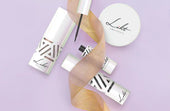
Liht Organics Black Friday: Enhance Your Beauty Routine with Vegan, Organic, and Natural Essentials!
As the holiday season approaches, there’s a sparkle in the air, and we at Liht Organics are thrilled to add a touch o...
-

Organic Makeup That Heals As It Conceals
Liht Organics Empowers Women With Only The Best For Their Beauty NeedsLiht Organics combines the best of both worlds:...
-
![[FEATURE] Liht Organics to debut at TFWA Asia Pacific show](//lihtorganics.com/cdn/shop/articles/1_1.png?v=1759328400&width=170)
[FEATURE] Liht Organics to debut at TFWA Asia Pacific show
‘Organic makeup that’s safe enough to eat’ — Liht Organics to debut at TFWA Asia Pacific show by Hannah Tan | 24 Apri...
-
![[FEATURE] The Singapore-based organic makeup brand is a first-time exhibitor at this year’s TFWA Asia Pacific Exhibition in Singapore in May 2025](//lihtorganics.com/cdn/shop/articles/2_1.png?v=1759328386&width=170)
[FEATURE] The Singapore-based organic makeup brand is a first-time exhibitor at this year’s TFWA Asia Pacific Exhibition in Singapore in May 2025
TFWA Asia Pacific preview: Liht Organics targets expansion in travel retail By DFNI Staff Writer The Singapore-bas...
-
![[FEATURE] Travel Retail Awards 2025 finalists - Best Make-up Product Color-Intense Liquid Lipstick – Liht Organics](//lihtorganics.com/cdn/shop/articles/4_e2f54f0f-fcd1-46e7-9990-fc9d29e35131.png?v=1759328382&width=170)
[FEATURE] Travel Retail Awards 2025 finalists - Best Make-up Product Color-Intense Liquid Lipstick – Liht Organics
Revealed: Travel Retail Awards 2025 finalists By Trbusiness Editor | Wednesday, 23 July 2025 15:21 TRBusiness is th...
-
![[FEATURE] Liht Organics targets expansion in travel retail](//lihtorganics.com/cdn/shop/articles/3_1.png?v=1759328346&width=170)
[FEATURE] Liht Organics targets expansion in travel retail
Organic makeup that’s safe enough to eat: Liht Organics targets expansion in travel retail By Laura Shirk Liht Organ...
-

[FEATURE] Gulf News: TikTok’s strawberry girl makeup trend: How to achieve that rosy glow inspired by Hailey Bieber
Berry, berry, strawberry, love strawberry, like BTS’s J-Hope, the band’s strawberry enthusiast once said. If only we ...
-

[FEATURE] Gulf Business Magazine : Liht-ing it up
Our founder, Nerissa Low was interviewed by Gulf Business, where she discussed her experience launching Liht, an orga...
-

[FEATURE] Daily Vanity: 11 local beauty brands owned by women – you’d be surprised how many of them started in their kitchens!
When we give a shout-out to homegrown beauty businesses, we aren’t just doing it for the sake of supporting local. Th...
-

[FEATURE] Entrepreneur ME : UAE-Based Liht Organics' Nerissa Low On Crafting An Organic Makeup Brand For The Skin-Conscious Consumer
As is the case with the origin stories of so many startups out there, Liht Organics came into being after its founder...
-

Mother, Baby & Child Editor’s Pick: Liht Organics Lights the Way
Excited to be the Mother, Baby & Child’s ‘Editors pick’ for their choice of Beauty brand.The article outlined the...
-

[FEATURE] EmiratesWoman - 8 Fabulous things to do in Dubai this weekend
by SARAH JOSEPHJANUARY 20, 2023Try the UAE’s first virtual reality makeup podium The popular VR-backed makeup exper...
-

Nerissa Low of Liht Organics On The Self-Care Routines & Practices Of Busy Entrepreneurs and Business Leaders
By Maria Angelova, CEO of Rebellious Intl.Date: 4 January, 2023Nerissa Low of Liht Organics On The Self-Care Routines...
-

Liht Organics: Meet the beauty brand that has caught the eye of the Royal Family of Bahrain
By Crystal Lee Digital Editor28 May 2021The world of clean beauty is, ironically, rather murky.That’s because the ter...
-

The latest luxury makeup and skincare drops, including serums, concealers, moisturisers and more
Allisa Noraini21 May, 2021It’s fine to splurge in the name of beauty. This new range of makeup and skincare drops are...
-

These SG Beauty Bosses Are Conquering The World Despite The Pandemic
First Singapore, then the US, China, Germany, Dubai, UK, South Korea, Malaysia, Hong Kong, Thailand, Australia… By...
-

Nerissa Low, Founder at Liht Organics
Written by Callum LaingPosted on December 26, 2020 10 min readNerissa Created Organic Makeup That Actually Improve...
-

Liht Organics – Makeup That Makes You
At Liht Organics, our mission is simple – to provide women (and men) with a safe experience when it comes to beauty s...
-

Why Should We Use Organic Makeup?
We cannot deny that cosmetics is one of our beauty essential item – it enhances our looks and conceals our flaws. Man...
-

Organic makeup and why your skin will love it: Liht Organics founder
By Jolene,July 27, 2020 |7 mins readOrganic make up in Singapore is a trend that is fast-catching on here as we becom...
-

[FEATURE] DC EDIT – Makeup & Confidence: Talking Self-love With Liht Organics’ Founder Nerissa Low
Makeup and confidence — the long, drawn-out fight that many of us have grappled with personally. I’m sure I’m not the...
-

[FEATURE] THE FEMALE CULTURE – I TRIED LIHT ORGANICS AND THIS IS HOW IT WENT
I’m a huge fan of makeup and I love testing out new products so I was pretty excited to get my hands on Liht Organics...
-

[FEATURE] SINGAPORE MOTHERHOOD – The Best Organic and Natural Skincare and Makeup for Pregnant and Breastfeeding Mums in Singapore
Pregnancy is a hormone-volatile period for women. One place where this makes itself seen and felt is on the skin. Som...
-

[FEATURE] AFTER CLINIC HOURS – 21 Back to Beauty Deals in Singapore (2020)
With spas and salons shuttered island wide for two months, I never thought I’d be this desperate for a good old’ Swed...
-

[FEATURE] KUL AL USRA MAGAZINE JUNE 2020
Choosing Pinks & Oranges this summer!Featured: Moisture Burst Lip Glaze in Pink Cupcake.
-

[FEATURE] Award-winning Organic Makeup Brand Liht Organics Gives Back to the Community & Environment During COVID-19
Singapore’s First Organic Makeup Brand with 100% Natural Makeup That Is Safe Enough to Eat Liht Organics promises org...
-

[FEATURE] COSMETICS DESIGN ASIA – COVID-19 ‘WAKE-UP CALL’: SINGAPORE’S LIHT ORGANICS SEES GLOBAL POTENTIAL AMID CLEAN BEAUTY CLAMOUR
Original article at: https://www.cosmeticsdesign-asia.com/Article/2020/06/26/Singapore-s-Liht-Organics-sees-globa...
-

[FEATURE] THE LIFESTYLE COLLECTIVE – BEAUTY SHOULD NEVER BE CRUEL
Date: June 24, 2020Author: Kristen Chen Liht (pronounced as light) Organics is a Singaporean organic makeup brand t...
-

[FEATURE] NÜYOU – 7 ONLINE PLATFORMS TO SHOP FOR CLEAN BEAUTY PRODUCTS
纯净美容(Clean Beauty)的美肤概念,再近几年来越来越受欢迎。随着消费者“爱自己”的美容意识逐步提升,对于用在脸上的所有物品、成分更为关注和讲究。以广义来讲,纯净美容主张使用“干净”成分和无毒配方,让肌肤的可能性损伤减到最小...
-

[FEATURE] COSMOPOLITAN MIDDLE EAST – 3 BENEFITS OF SWITCHING TO ORGANIC BEAUTY PRODUCTS THIS RAMADAN
By Cosmo – May 08, 2020Nerissa Low, founder of Liht Organics, shares the ultimate benefits of going organic this mont...
-

Nerissa Low of Liht Organics: “Seeing Light at the End of the Tunnel; 5 Reasons To Be Hopeful During this Corona Crisis”
Ely Weinschneider, Psy.D.May 8 · 9 min read …It shows us that everyone- whether we are rich or poor, regardless...
-

[FEATURE] AL MARA MAGAZINE APRIL 2020
-

[FEATURE] RetailME April 2020 – Liht Organics Stays Firm On Strengthening GCC Presence
-

[FEATURE] EMARAT AL YOUM NEWSPAPER – 27 MARCH 2020
English Translation:In spring and summer days, women love to have very light makeup in terms of color and texture, ...
-

[ARTICLE] WKND Magazine March 2020 – Know Your Organic Makeup
-

[FEATURE] AVIAMOST DUBAI – March/April 2020
English Translation:Lipstick with organic flowers. Thanks to the rich complex of natural ingredients, the lipstick...
-

[FEATURE] RUSSIAN EMIRATES (MAR/APR ISSUE)
Russian Emirates is a luxury lifestyle and fashion magazine covering information about the UAE, fashion, beauty, j...
-

[FEATURE] – KUL AL USRA MAGAZINE MARCH 2020
GET THE LOOK!
-

[FEATURE] IMAGES Retail ME – Liht Organics Announces GCC-Wide Expansion
Rupkatha Bhowmick Mar 10, 2020 The plan is to reach 75 Liht Organics retail touchpoints by June-July 2020 and touch...
-

[FEATURE] BABY & CHILD SPRING 2020 – NATURAL BEAUTIES
-

[FEATURE] AWQAT DUBAI – Liht Organics: The First Premium Organic Makeup Brand
ENGLISH TRANSLATION:Liht Organics – The First Premium Organic Makeup Brand Liht Organics, a premium organic beauty ...
-

[FEATURE] FRIDAY MAGAZINE – THE RETRO EYELINER LOOK
-

[FEATURE] MOTHER BABY & CHILD – VANITY ESSENTIALS – THE BEAUTY EDIT
-

[FEATURE] Masala! Magazine February/March 2020 Issue – Beauty Debut: Liht Organics
-

[Feature] – TimeOut Singapore – The Best Local Beauty and Skincare Brands In Singapore
For full article, click here.
-

[FEATURE] KUL AL USRA MAGAZINE – LIHT UP YOUR WORLD WITH LIHT ORGANICS
[ENGLISH TRANSLATION]Liht Up Your World With Liht OrganicsThe First Premium Organic Makeup Brand To Debut In The Mi...
-

[FEATURE] SINGAPORE TATLER – 9 Local Beauty Brands You Should Know Of
-

[FEATURE] nüyou August 2019 Issue – 15 Faces To Watch
-

[FEATURE] HONEYCOMBERS – Local Beauty Gurus: Singapore Beauty Brands You Need To Know About
-

[FEATURE] The Wellness Insider – Seeing The Liht With Founder Nerissa Low
-

[FEATURE] 联合早报 (LianHeZaoBao) – Women Entrepreneur Awards 2019 Coverage
-

[FEATURE] THE STRAITS TIMES Life – Clean beauty with a Singapore heart
-

Romantic Organic Makeup Looks for Valentine's Day: Tips, Tricks, and Product Picks
Valentine's Day is the perfect occasion to embrace the beauty of organic makeup. At Liht Organics, we believe in the ...
-

Enhance Your Eyes: A Guide to Eyeliner for Every Eye Shape with Liht Organics
Welcome to the Liht Organics blog, where we believe in celebrating the natural beauty of every eye shape. Today, we'r...
-
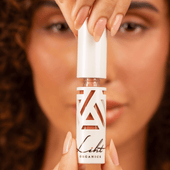
How to do makeup with only lipstick?
At Liht Organics, we believe in the power of clean beauty and the artistry of makeup. Makeup is more than just enhanc...
-

How to Clean Your Makeup Brushes in 6 Simple Steps
Cleaning your makeup brushes may seem like a tedious task, but it's an essential part of your beauty routine. Not onl...
-

Makeup Tips to Help You Look Your Most Flattering on Virtual Meetings!
After more than 2 years of work-from-home arrangement, and possibly hundreds of zoom calls and Google meet virtual me...
-

Learn How to Contour with This Simple Guide for Beginners
Want to take your makeup to the next level? Try contouring to achieve a more defined or sculpted look à la the Kardas...
-

Essential and Easy Makeup Tips for Sensitive Skin
Living with sensitive skin conditions like eczema, psoriasis, and more is already not an easy feat. Throw in makeup t...
-

Raising Your Vibration: A Liht Organics Guide for Empowerment This International Women's Day
wp:paragraph As International Women's Day (IWD) approaches, it serves as a powerful reminder of the journey towards s...
-

The Beauty of Going Bare: Why Sleeping with Makeup is a No-No
Have you ever had one of those nights where you're too tired to clean off your makeup? You might believe, "Skipping...
-

Breast Cancer Awareness: Empower Your Beauty with Liht Organics Makeup
During October, we observe Breast Cancer Awareness Month as a way to unite and bring attention to breast cancer whil...
-

The Hidden Dangers of Carmine in Makeup Colorants: Embracing Healthier and Vegan Options
Makeup has become an integral part of our daily routines, allowing us to express our unique beauty. However, as we pr...
-

How can I ensure that my makeup products are organic and won't harm my skin?
When it comes to makeup, it’s important to be mindful of what you’re putting on your skin. With so many products on t...
-

[FEATURE] HONEYCOMBERS – BEST BEAUTY BUYS IN JULY
by Nicole NithiyahWhat’s hot in our beauty hit list: Honest thoughts and top beauty stories we’re swooning over. As w...
-

Liht Organics Introduces Exclusive Gift Sets: Enhance Your Beauty This Festive Season!
As the holiday season approaches and the year draws to a close, Liht Organics is thrilled to present two enchanting g...
-

Get Spooktacular with the Best Halloween Makeup Ideas using Liht Organics' All-Natural, Vegan, and Cruelty-Free Cosmetics!
With Halloween just around the corner, it’s time to let your creativity shine and transform yourself into a spooky,...
-

Celebrating World Animal Day with Liht Organics: Embracing Natural Cruelty-Free Makeup
wp:paragraph As we observe World Animal Day, the team at Liht Organics takes great pride in honoring our pledge to...
-
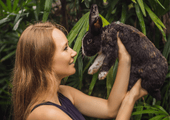
Reasons Why You Should Choose Cruelty-Free Cosmetics Instead!
With increasing exposés unveiling the ugly truth behind animal testing that goes on in the beauty industry, it is lit...
-

Celebrate Singles Day with Makeup That Empowers – 22% Off at LIHT Organics!
This Singles Day, treat yourself to beauty that goes beyond skin-deep. At LIHT Organics, we believe makeup is about s...
-

Preparing for the Cozy Beauty of Autumn: A Preview of Your Fall Look
As we bid farewell to the warm, sun-kissed days of summer, it’s never too early to start dreaming about the enchantin...

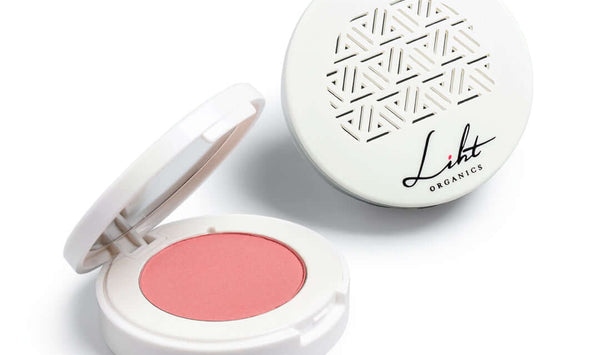
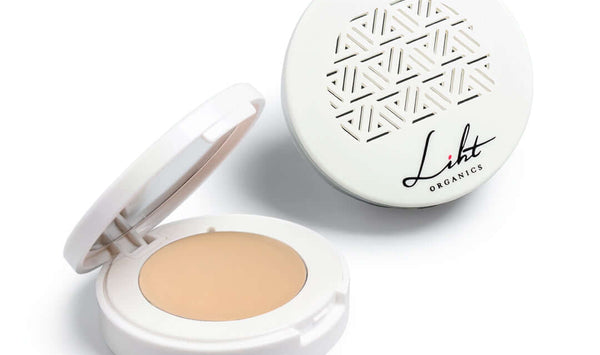
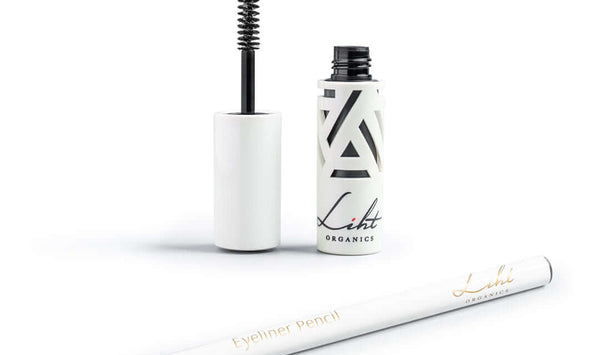
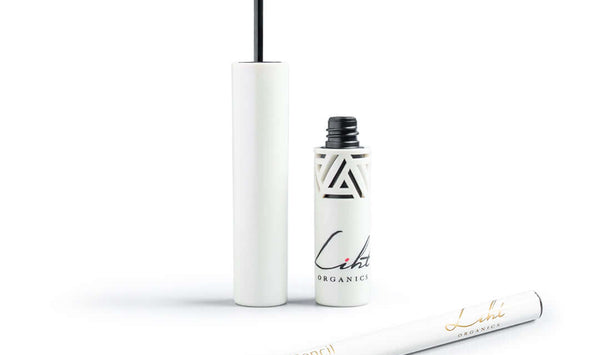
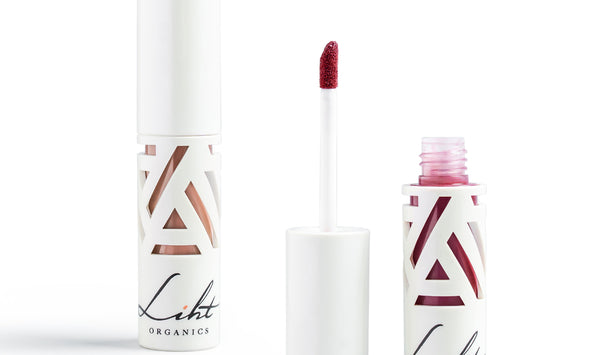
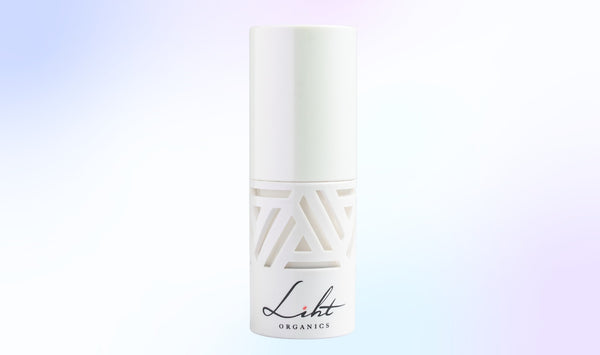

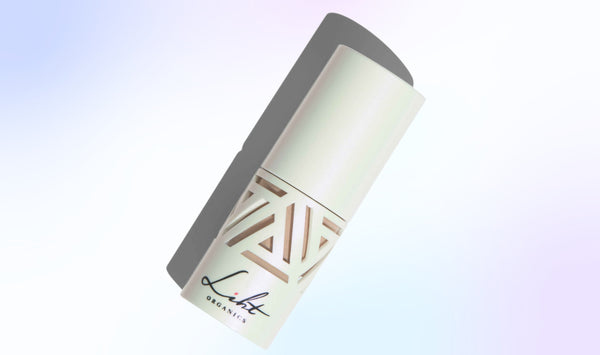
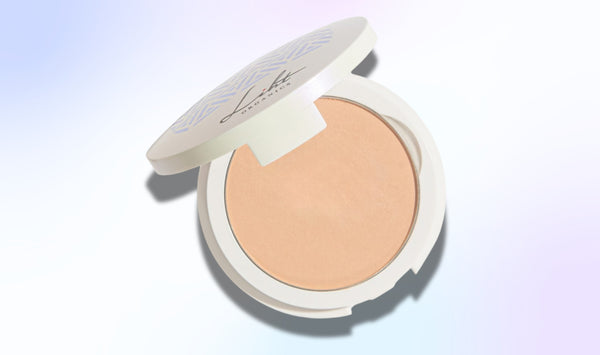
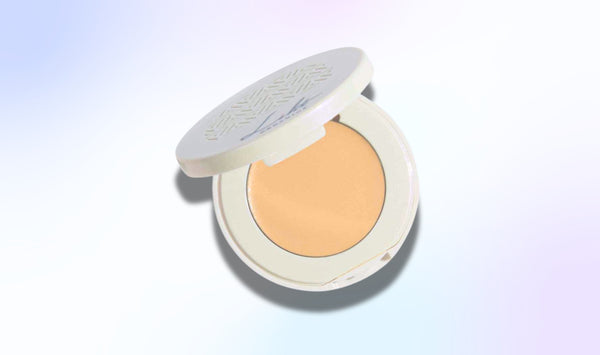
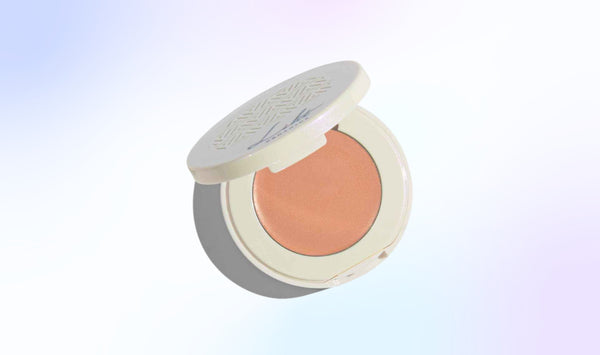
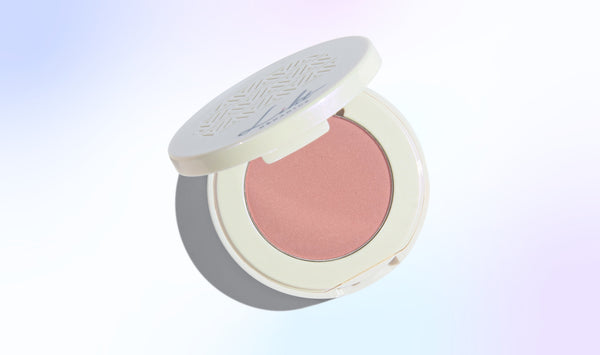
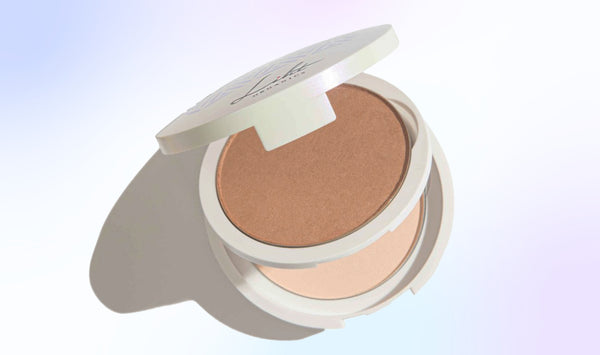
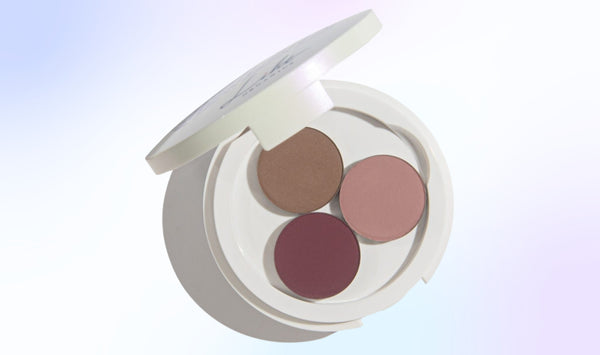
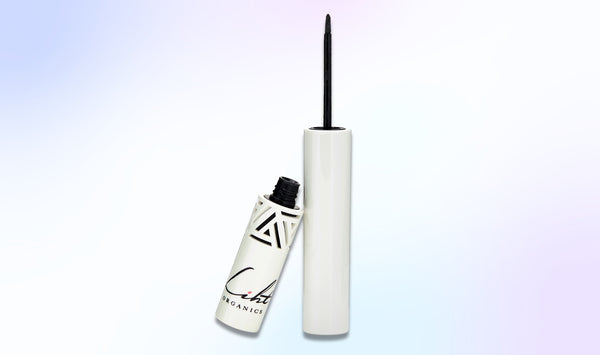
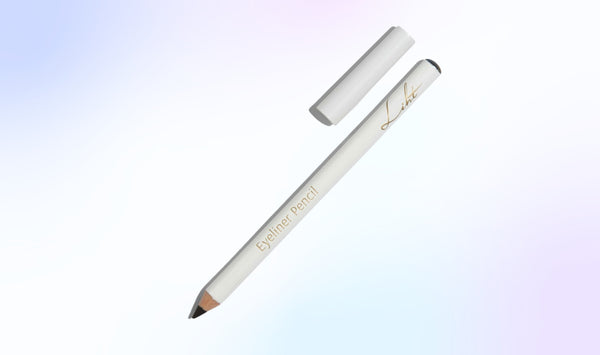
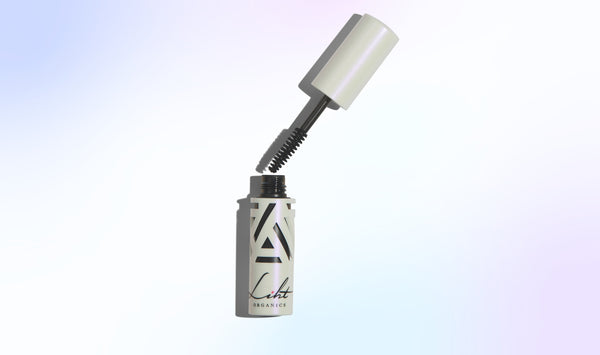
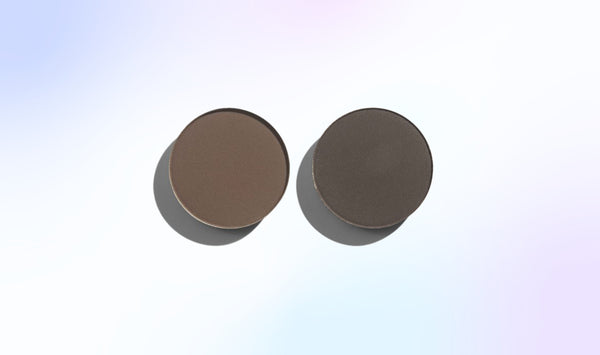
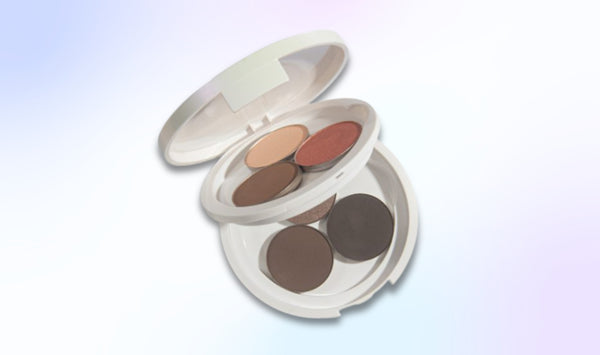
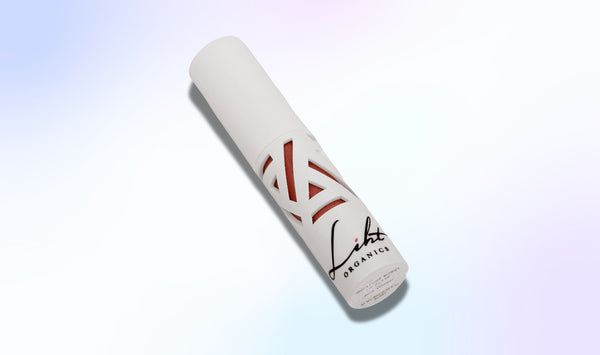
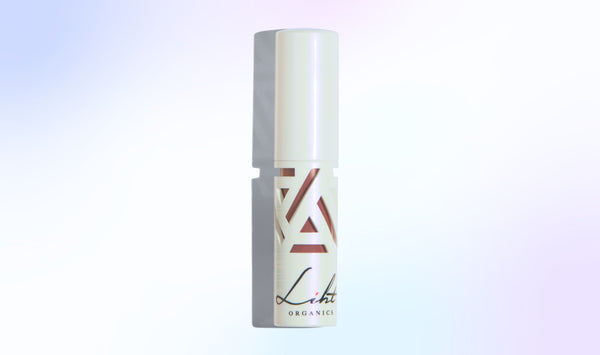
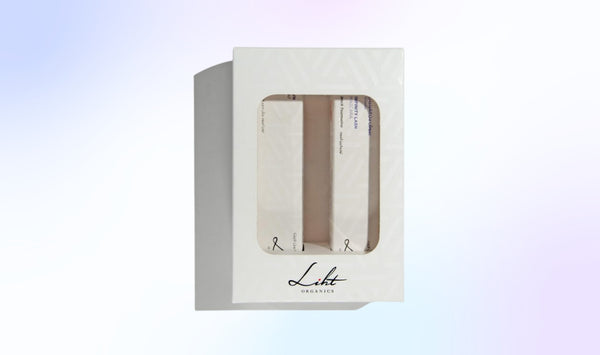
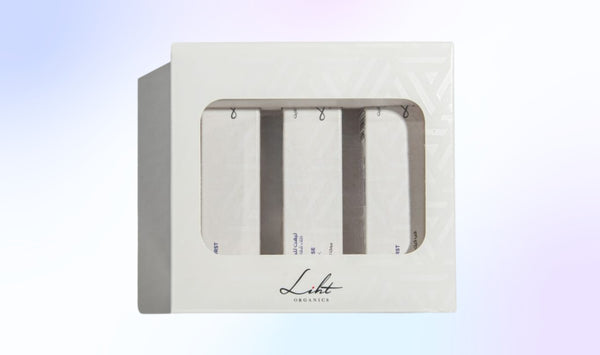


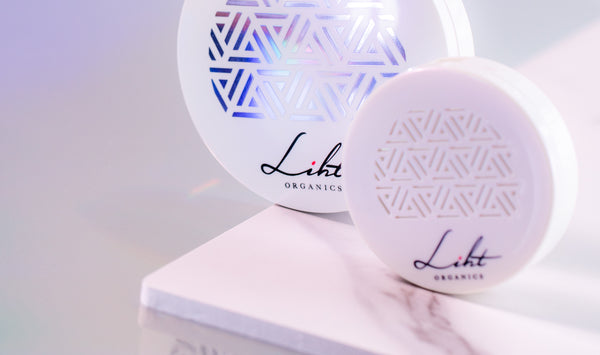
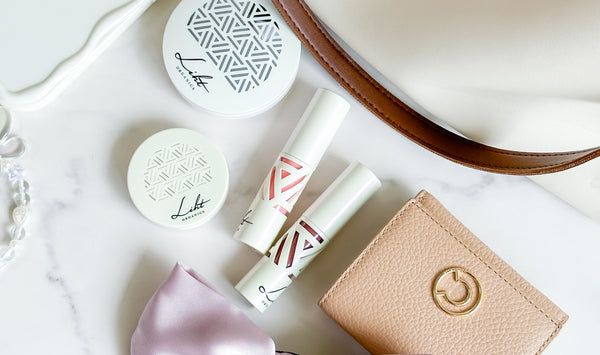
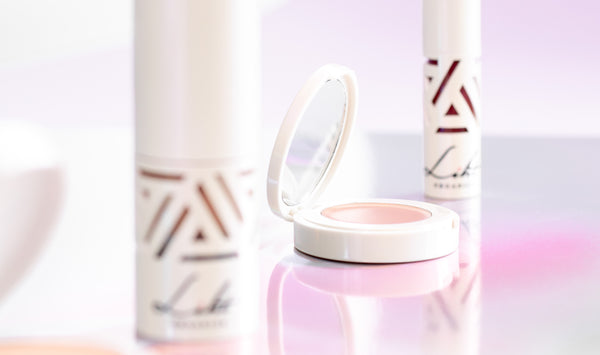




![[FEATURE] Liht Organics to debut at TFWA Asia Pacific show](http://lihtorganics.com/cdn/shop/articles/1_1.png?v=1759328400&width=170)
![[FEATURE] The Singapore-based organic makeup brand is a first-time exhibitor at this year’s TFWA Asia Pacific Exhibition in Singapore in May 2025](http://lihtorganics.com/cdn/shop/articles/2_1.png?v=1759328386&width=170)
![[FEATURE] Travel Retail Awards 2025 finalists - Best Make-up Product Color-Intense Liquid Lipstick – Liht Organics](http://lihtorganics.com/cdn/shop/articles/4_e2f54f0f-fcd1-46e7-9990-fc9d29e35131.png?v=1759328382&width=170)
![[FEATURE] Liht Organics targets expansion in travel retail](http://lihtorganics.com/cdn/shop/articles/3_1.png?v=1759328346&width=170)
































































